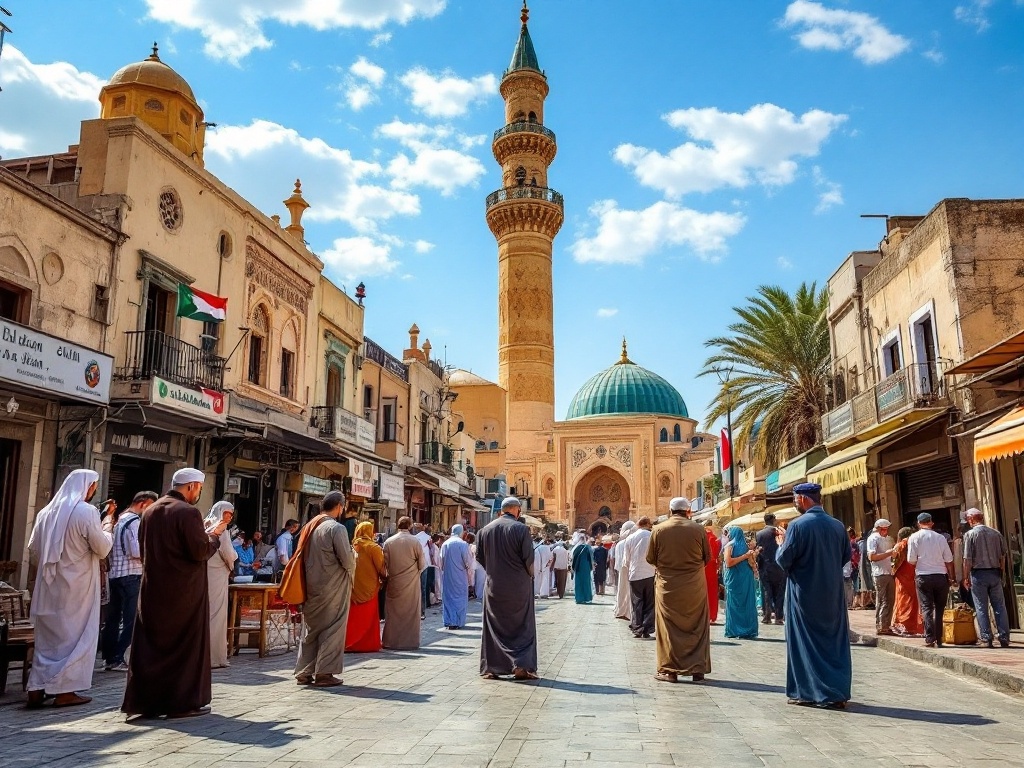Prayer Time in Jordan: Conscious Traveling
Enhance your Jordanian adventure by respecting local customs, especially Islamic prayer times. These times, based on the sun’s position, shift daily. Learn how to easily find current prayer times—through apps, websites, and local mosques—to plan your activities respectfully. Discover how understanding prayer times enriches your cultural experience and fosters deeper connections in Jordan. Dive in to learn more!
Important information

- Islamic prayer times in Jordan change daily, based on the sun’s position.
- You can find prayer time schedules online, via apps, at mosques, and often in hotels.
- Respectful travel includes dressing modestly and being mindful of prayer times, especially during Ramadan.
- During Ramadan, avoid eating or drinking in public during daylight hours.
- Tourists can observe Taraweeh, special nightly prayers during Ramadan, for cultural insight.
Understanding Prayer Time in Jordan: Conscious Traveling
Respecting local customs, such as understanding Islamic prayer times, greatly enhances any Jordanian adventure. These prayer times, based on the sun’s position, change daily. For example, Amman uses sunrise and sunset as guides. Finding this information is simple. You can find it through online resources, mobile apps, and local mosques which provide accurate schedules. Many hotels also offer this information to guests. Planning your activities around these times demonstrates respect and deepens cultural understanding, ultimately leading to a richer travel experience.
How are Islamic Prayer Times Calculated?
The sun’s position is essential for determining the five daily Islamic prayer times. Sunrise and sunset mark key points for these calculations, which dictate when the call to prayer (the azan) is made. For instance, Fajr is observed before sunrise, Dhuhr is held at midday, and Isha takes place at night.
Fajr to Isha: Daily Prayer Schedule
Today’s prayer schedule is as follows:
- Fajr: 5:27 AM,
- Dhuhr: 12:45 PM,
- Asr: 4:10 PM,
- Maghrib: 6:48 PM,
- Isha: 8:05 PM.
What are the Prayer Times in Amman?
Today’s prayer schedule for Amman is as follows:
- Fajr: 5:27 AM,
- Dhuhr: 12:45 PM,
- Asr: 4:10 PM,
- Maghrib: 6:48 PM,
- Isha: 8:05 PM.
Conscious Traveling: Respectful and Safe Practices
When traveling in Jordan, embrace the local culture by respecting customs and religious practices. Dress modestly, and be aware of fasting periods, particularly during Ramadan. Acknowledge prayer times and avoid causing disruptions as a sign of respect. Engaging with locals can provide valuable insights into safe and respectful behavior. Trust your instincts and steer clear of potentially unsafe situations. Here are some helpful tips for your trip:
Respectful Interactions
- dress modestly, especially when visiting religious sites,
- be mindful of prayer times and avoid loud conversations or music during these periods,
- ask for permission before taking photos of people,
- learn basic Arabic phrases to enhance communication and show respect.
Safety Precautions
- be aware of your surroundings and avoid walking alone at night,
- keep valuables secure and out of sight,
- inform someone of your itinerary and expected return time,
- trust your instincts, if a situation feels unsafe, remove yourself from it.
Modest Dress and Cultural Sensitivity
During Ramadan, dressing respectfully demonstrates consideration for local customs. This includes covering your shoulders and knees.
Refraining from Eating or Drinking in Public
During Ramadan, please be mindful of those who are fasting by refraining from eating or drinking in public during daylight hours. This gesture of respect is greatly appreciated.
Experiencing the Community Spirit in Jordan
Experience the spirit of Ramadan in Jordan by witnessing the Taraweeh, special nightly prayers that showcase the community’s deep devotion. Public Iftar tents offer a welcoming space to share the breaking of the fast, fostering understanding between locals and visitors through this powerful cultural exchange. Tourists are welcome to observe and learn about Islam firsthand. While direct participation is generally best avoided unless invited, respectful observation offers a profound insight into Jordanian culture.
Participating in Taraweeh Prayers
During Ramadan, Muslims observe Taraweeh, special nightly prayers. Although voluntary, these prayers are a treasured tradition globally, providing a time of deep devotion and reinforcing community bonds through shared worship. They are performed after the Isha prayer.












